.Katie Waterman, Andrea Dart, Victoria Cacioppo and Amanda Wood, all founding partners at Sister Merci, a full-service, Toronto-based agency serving the cannabis industry. Paul Lawton, the company’s other founding partner and director of strategy, sat this one out 🙂
Katie Waterman, Founding Partner, CEO
Katie has spent the last 10 years working in Canada’s top agencies leading digital and social strategy for top-tier clients including Infiniti, Nissan, Samsung, and most recently, McDonald’s Canada. As a Director on the Planning team at Weber Shandwick, Katie oversaw channel planning and the execution of integrated media programs across the agency’s most elite clients. Campaigns under Katie’s leadership won top industry awards with the agency itself bringing home IABC Canada’s Large PR Agency of the Year for two years in a row. Katie earned her MBA from Memorial University and a BSc from McMaster University in Kinesiology with a minor in French Studies.
Andrea Dart, Founding Partner, Managing Director
Andrea has more than a decade of experience partnering with national and global clients to deliver award-winning campaigns and grow market share. She has developed strategy, channel planning and integrated media programs for Canada’s top brands. Andrea held senior counsel positions for McDonald’s Canada, General Motors, RBC and The Bill and Melinda Gates Foundation. She specializes in Purpose and Impact work and has lived all over the world developing integrated campaigns for Unilever, Right To Play, The African Union, The MasterCard Foundation, and more. Andrea has led campaigns to multiple award wins, including a CLIO for her work with The Gates Foundation. She earned her undergraduate degree at The University of Western Ontario and a post-graduate certificate in Economics at the University of Toronto.
Victoria Cacioppo, Founding Partner, Business Evolution
Victoria has significant experience in corporate communications and risk preparedness, having supported clients through change management, reputation crisis and legal challenges. Prior to joining Sister Merci, she also led Weber Shandwick Canada’s awards program, oversaw the development and implementation of the agency’s national marketing plan, and drove new business generation. Victoria has developed fully-integrated programs for pharmaceutical, consumer and corporate clients and led day-to-day activities managing integrated projects for a variety of B-to-B accounts including McDonald’s Canada, Royal Bank of Canada, Novartis Canada, Bayer CropScience, CropLife Canada and the Air Canada. She earned her Bachelor of Management and Organizational Studies (BMOS) with an Honours Specialization in Global Commerce from King’s University College at The University of Western Ontario.
Amanda Wood, Founding Partner, Creative Director
Amanda is an artist at heart who began her career as an advertiser in 2008 in the automotive space. As an art director, she developed brand and retail level campaigns first for Mazda, then Toyota before leaving the industry for an opportunity in the non-profit space. She joined Just For Laughs in 2012 to launch the world’s first social media-based comedy festival. In 2016 she joined Weber Shandwick and as Associate Creative Director, helping the agency bring home 40+ IABC Ovation and CPRS ACE awards for clients like Canadian Tire, Sport Chek, McDonald’s, and Air Canada, including CPRS ACE’s 2018 Creative Campaign of the Year. She holds a BFA from Queen’s University and a diploma in advertising and graphic design from Humber College.
Thank you so much for doing this with us! Can you tell us the “backstory” about what brought you to the cannabis industry?
Victoria:
It’s not often you get the chance to be part of a building an industry from the ground up, where you can set the rules of engagement on how things should be, not just how they can be. The opportunity to be part of something that can genuinely impact the world in a positive way was a huge draw for all of us entering the cannabis industry.
And we’ve seen so many others enter the space because it provides the creative and strategic opportunity to build brands from the ground up and initiate new ways of thinking.
Andrea:
My partner and I use cannabis regularly and grow it at home, so entering the industry was a natural fit for me. Having such easy access to something that can help so many made me want to help ensure everyone had access too.
And using my experience in marketing to help build brands responsibly from the ground up seemed like the marriage of my passions. We want to be a force for good in the industry and help brands to do so too.
Can you share the most interesting story that happened to you since you began leading your company? Can you tell us what lesson you learned from that?
Katie:
Since legalization and starting this business, we’ve had so many open and interesting discussions with peers and clients about their cannabis consumption habits. I think it’s a good reminder of how inclusive the cannabis industry is but conversely, a reminder that the stigma is still very strong and that we have a lot of work to do to bring more people in and change the conversation.
Can you share a story about the funniest mistake you made when you were first starting? Can you tell us what lesson you learned from that?
Katie:
Since we’re all first-time entrepreneurs starting a business together, we’ve made many mistakes that we look back on and can laugh at now—from not fully preparing for interviews, to meetings with some colourful characters, you definitely learn quickly! We now appreciate the value of properly preparing for opportunities to share our opinions and point of view on what’s happening in the newly emerging legal industry.
Also, getting high with clients. It brings agency-client relationships to a whole new level!
Amanda:
Yeah, I’ll never forget when I went to an industry event where I ‘dabbed’ (inhaled shatter vapour) for the first time with my client. It was a new client who was hosting a private party during one of the big cannabis conferences in Toronto. They make a dab rig, so I felt compelled to sample some of the product they developed and got completely ripped off a very small dab. It got so bad I was unable to carry on conversations and had to excuse myself shortly thereafter.
So word of warning if you’ve never dabbed, don’t do it with a client you’re trying to impress!
Do you have a funny story about how someone you knew reacted when they first heard you were getting into the cannabis industry?
Katie:
Personally, my parents were thrilled. I’m pretty sure they’re Sister Merci’s biggest fans. They’ve always been pretty open-minded, but it’s been incredible to see how our collective relationship to cannabis has changed since I’ve started working in the industry. They’ve always known I’ve consumed but we’ve never really talked about it. Now I’m ordering my dad a variety of THC & CBD soft gels, directing them to their closest retailer and we smoked our first joint together the other weekend before they went to a Fleetwood Mac concert. I think they’re pretty happy that they have someone on the inside 😉
Victoria:
Funnily enough, it was my parents who actually convinced me to get into the industry.
My parents have always been supportive of me in whatever career I chose but being a fairly tame/sheltered individual, I definitely wasn’t as educated or exposed to the industry as some of my teammates. So when the opportunity to join Sister Merci first came about, I was a little unsure. I initially thought my parents–who traditionally were strict about me smoking growing up—would be hesitant, but it was my dad who hyped me up and showed me that this time in the cannabis industry was exactly the type of opportunity I was looking for. Now, even my 83-year-old Nonna is onboard!
None of us are able to achieve success without some help along the way. Is there a particular person who you are grateful towards who helped get you to where you are? Can you share a story?
Katie:
I’d like to say that all of us at Sister Merci are pretty grateful for Stephen Headford, known dearly to us as “Uncle Stevie”. Steve is a founding partner and our Chairman and has really been a mentor to the team as we’ve operationalized the business over this past year. He comes from an extensive background of venture capital and business experience in both private and public markets and owned an advertising agency of his own in the seventies. Steve helped to identify the initial opportunity to get us in front of our investors and first client and has been our number one supporter since day one.
It’s been just over a year since we first met with Steve over a beer and decided to start Sister Merci. I have a close relationship with Steve – he’s my husband’s uncle (hence “Uncle Stevie”). Initially, Sister Merci was going to launch as a multi-purpose brand consultancy and product innovation agency, with our first product being a female-focused, cannabis infused sexual lubricant. So, please picture the awkwardness and hilarity of sitting at a table with your husband’s uncle and your future business partner, talking about weed lube and orgasms, lol.
Victoria:
We love Uncle Stevie!
Are you working on any new or exciting projects now? How do you think that will help people?
Katie:
We have a lot of exciting work ahead with our roster of incredible clients. We’re just about to start a new project with an organic cannabis producer from the west coast and we’re thrilled to have the opportunity to educate consumers about what really makes this product stand out. We’re also nearing the end of the first of a four-phase campaign for Canopy Rivers, a venture capitalist firm investing in cannabis startups across all segments of the cannabis value chain. The campaign includes a variety of strategic and compliant creative placements (in Canada, all marketing of cannabis is heavily regulated by Health Canada under the Cannabis Act): from the longest out-of-home wrap around digital screen in Canada to commissioning an artist to create a blacklight mural installation on a building located in one of the highest foot-traffic areas in downtown Toronto. The aim of this campaign is to shift the conversation from the short-term volatility of the cannabis industry towards a more positive outlook of a sustainable and prosperous future.
Amanda:
Our very first client, mihi (pronounced ‘mee-hee’), is a cannabis retailer. When we began working with them, the focus was on recognizing that every individual’s relationship with cannabis is unique and mihi wanted to be the brand to guide consumers through their own individual experience. To build awareness for mihi prior to store openings, we created a campaign centred around sharing the stories of Canadians’ relationship with cannabis. At first, we thought it might be difficult to get writers to open up about a still stigmatized substance. What we found was that people were excited to have the opportunity to publicly talk about their cannabis use. To open up about a part of their lives they historically felt they had to hide, I think it was liberating for a lot of our writers. Hopefully it inspired other people to do the same.
Ok. Thank you for all that. Let’s now jump to the main core of our interview. Despite great progress that has been made we still have a lot more work to do to achieve gender parity in this industry. According to this report in Entrepreneur, less than 25 percent of cannabis businesses are run by women. In your opinion or experience, what 3 things can be done by a)individuals b)companies and/or c) society to support greater gender parity moving forward?
Andrea:
I would say it’s the same things that need to happen in every industry. This isn’t an issue agnostic to cannabis. Resolve the pay gap, take a better look at your job postings and screenings for bias, and outdated “must-haves” that subconsciously remove women and mothers from the running and run a business that supports the flexibility and balance that mothers (and all parents) need.
Specifically, in cannabis, I would call out nepotism. There are a lot of people coming over from other industries who’ve worked together a long time and we’re seeing a lot of those groups as predominantly male. Trying to re-create the “boys clubs” of other industries is an obvious trend and certainly a dangerous one.
Victoria:
Agree with Andrea, it’s really the same things that need to happen in every industry.
On an individual level: support women-led companies with your dollars, not just your likes. Also, (and a bit more of a challenge for our male friends and allies) but be more open about your salary ranges with female colleagues / friends. You’d be amazed at how sharing even a high-level range will be telling enough and empower other females to get what they deserve.
Companies: be willing to have the uncomfortable conversation. Whether that’s being transparent about salary ranges, pushing teammates (and often friends) to reflect on bias or accepting criticism or feedback as genuine opportunities to grow. It’s hard, hence the discomfort, but you become so much better for it.
Societies: if you’re fortunate enough to have the spotlight, pay it forward. There are so phenomenal women in cannabis that deserve more recognition! Check out Barinder Rasode, Abi Roach, Jamie Shaw to name just a few.
Amanda:
Statistics Canada has shown that the percentage of female cannabis consumers in Canada is growing, so there’s a massive opportunity there. Women use cannabis for very different reasons than men, and often are using it therapeutically. These female consumers can play a huge role in supporting women in cannabis simply through the purchases they make. For example, if you’re purchasing THC-infused tampons to help ease menstrual cramps, do your research and choose the product or brand that’s founded/led/run by women over the one that isn’t. We need gender solidarity!
You are a “Cannabis Insider”. If you had to advise someone about 5 non intuitive things one should know to succeed in the cannabis industry, what would you say? Can you please give a story or an example for each.
Katie:
- Understand the regulations inside and out (for us, this is Canada, the US, Europe, etc.)
- Change is inevitable so be prepared to pivot with the changes in legislation
- Have a community-centric mindset and remember that the cannabis industry existed long before legalization
Andrea:
It’s a commodity market, which makes it sometimes less exciting than a lot of people expected. Supply and demand are the very real proponents of success here.
Victoria:
Investors and customers are two very different audiences. The first has been catered to far more than the other, but the latter will ultimately determine your success in the industry.
Amanda:
In such a new industry, you are writing the blueprints in a lot of ways. You can’t rely on the “way things have always been done”. This is something we are teaching our clients as well. There are no benchmarks, we can’t guarantee results, you have to be willing to take chances.
Can you share 3 things that most excite you about the cannabis industry?
Andrea:
We have the opportunity to build a new industry the right way. We can learn from the mistakes of other markets and create a community that values diversity of thinking, social impact, sustainability and remaining true to where the culture has come from. We can choose to sit back and watch this thing grow, or we can push to ensure it creates more good than bad for the future.
Katie:
We have yet to see some of the most interesting scientific advancements in cannabis that will be coming down the pipeline (Cannabis 3.0).
Victoria:
While I agree with the above, what excites me most is the actual growing aspect. I started my career supporting agriculture clients, so connecting with growers, seeing how dedicated they are to the well-being of the plant and planet, is enough to get me out of bed in the morning. People who are passionate about what they do always excites me because you can really tell when something was grown with care and heart—and cannabis has that. It’s a brand-new crop being added to our agricultural industry, reinvigorating small-town economies and providing opportunities to transfer existing ag skills! All from one little plant.
Can you share 3 things that most concern you about the industry? If you had the ability to implement 3 ways to reform or improve the industry, what would you suggest?
Katie:
- Lack of trust from consumers and the lack of acknowledgement from brands who the core consumer is. Many brands seem to focus on an aspirational, high-income consumer, who may eventually enter the category, but that’s not yet happening today. Our job for the next year is to get serious about building trust before we move on to drawing in consumers who might not be ready for us yet.
- Since legalization, cannabis consumers have been leaving a mountain of feedback, much of it negative. This feedback is often overlooked, leaving consumers to feel like legal weed is just not for them and sticking with the illicit market. Brands need to do a better job at listening to current consumers if they want to create new ones.
- Environmental impact. Across the industry we are seeing a ton of waste. While brands must adhere to packaging regulations set by Health Canada under the Cannabis Act, we have yet to see a big shift from the amount of plastic being used and not recycled.
What are your thoughts about federal legalization of cannabis? If you could speak to your Senator, what would be your most persuasive argument regarding why they should or should not pursue federal legalization?
Katie:
Since cannabis is now legal nationwide in Canada, I think we’re facing some unique issues across each province. Sister Merci’s home base is in Toronto, Ontario, where the conversation around cannabis retail has dominated the news cycle with the alcohol and gaming regulators facing a high level of criticism. We’ve seen the negative impact that the current lottery system has had on our clients, partners and friends who have invested in their respective cannabis retail businesses but have yet to open their doors. We will continue to be part of the conversation around advocating for an open licensing system for recreational cannabis retail. For one, it will give consumers more access to legal product. Secondly, there are massive financial implications: job creation, taxation, sales revenue, retail price point, etc.
Andrea:
Federal legalization is critical because it is the first step in the path to create amnesty, but legalization on its own is not enough. We need to ensure that the government and industry also step up to reverse the harms caused by the criminalization of cannabis possession that disproportionately impacted black, indigenous and other minority members of our community.
Victoria:
I’m all for legalization but agree that it’s only the first step—especially from the medical access standpoint. We need to consider new models of medical access as there are so many patients who rely on cannabis that are being left behind in the current system.
In Canada, there is a push (and great need!) for the federal government to review post-legalization enforcement following recent raids on some of the country’s oldest compassion clubs and dispensaries. These are the organizations that paved the way for federal legalization. We should be incorporating their knowledge and experience into the legal framework to ensure patients in need get access to treatment.
Today, cigarettes are legal, but they are heavily regulated, highly taxed, and they are somewhat socially marginalized. Would you like cannabis to have a similar status to cigarettes or different? Can you explain?
Katie:
Being in Canada, where cannabis is federally legal and we have heavier restrictions on cigarettes than the U.S., it’s hard to answer this. Right now, cannabis is being treated similar to tobacco in that it’s highly regulated and brands are extremely limited in how they can market themselves. While we’re hopeful these restrictions will change, we understand and appreciate why the government chose this approach. It’s easier to over-regulate and remove restrictions than it is to under-regulate and impose them after.
Can you please give us your favorite “Life Lesson Quote”? Can you share how that was relevant to you in your life?
Katie:
“Make Waves. Be Kind.” – from my recently dearly departed friend, Dr. Barbara Tatham. This was her mantra and those that knew her, quickly adopted it as a model to live by. She taught me (and everyone around her for that matter) how to live with compassion, with purpose and to always, always choose kindness. If we’re talking about strong female leaders who have the ability to inspire others, no one fits the bill quite like Barbara.
Andrea:
If the path before you is clear, it’s probably someone else’s
Victoria:
Asking for help shows strength, not weakness.
Amanda:
It has taken me a long time to understand that mistakes are not failures, they are opportunities to learn something new. I still have to work at this one! I think women put a lot of pressure on themselves to be “perfect” but as the great Paula Scher says: “you have to get bad in order to get good.”
You are a person of great influence. If you could inspire a movement that would bring the most amount of good to the greatest amount of people, what would that be? You never know what your idea can trigger. 🙂
Victoria:
Today’s world often positions issues in an ‘us versus them’ kind of way. It might seem cheesy (or obvious coming from us) but our movement of choice is clearly the Weed Movement. Light up a joint and share it with someone who has a different perspective than you. You’d be surprised at the genuine conversations that can happen, and who knows? You might walk away with a different outlook on the world.
Thank you so much for the time you spent with this. We wish you only continued success!


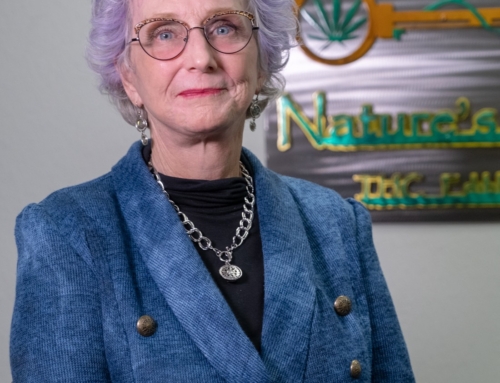
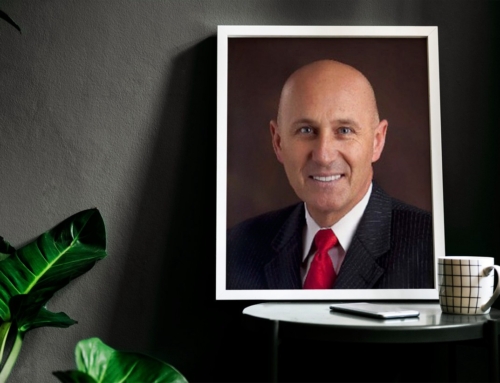
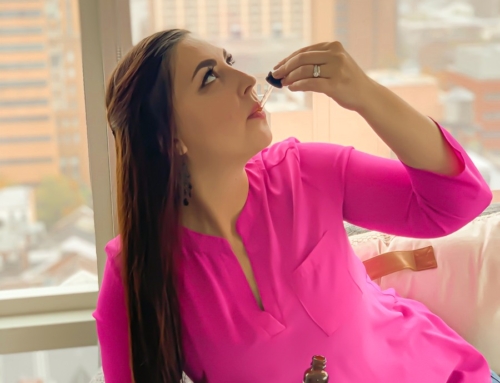

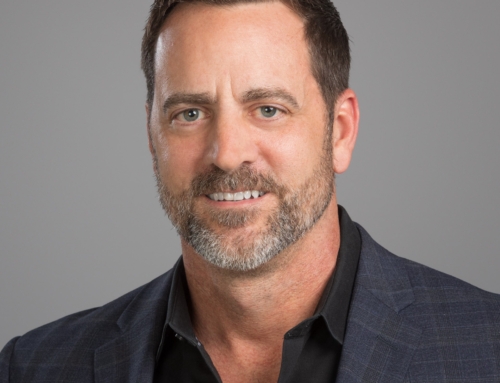
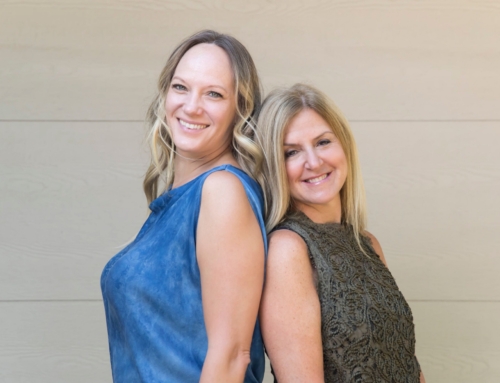
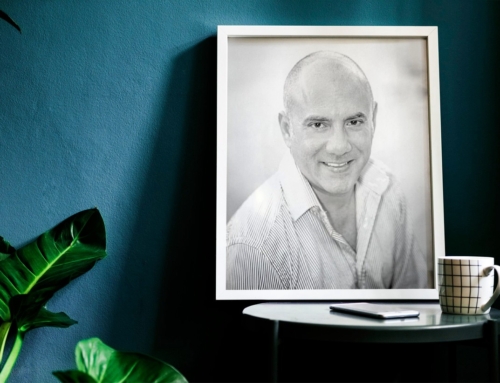
![“The potential to help people [in this industry] is enormous, but there’s still so much to learn.” – Ramon Alarcon, Witi](https://lakesideremedy.com/wp-content/uploads/2020/12/1thj5ekUyxQ69iLz1JJyODg-scaled-e1607882756286-500x383.jpeg)
